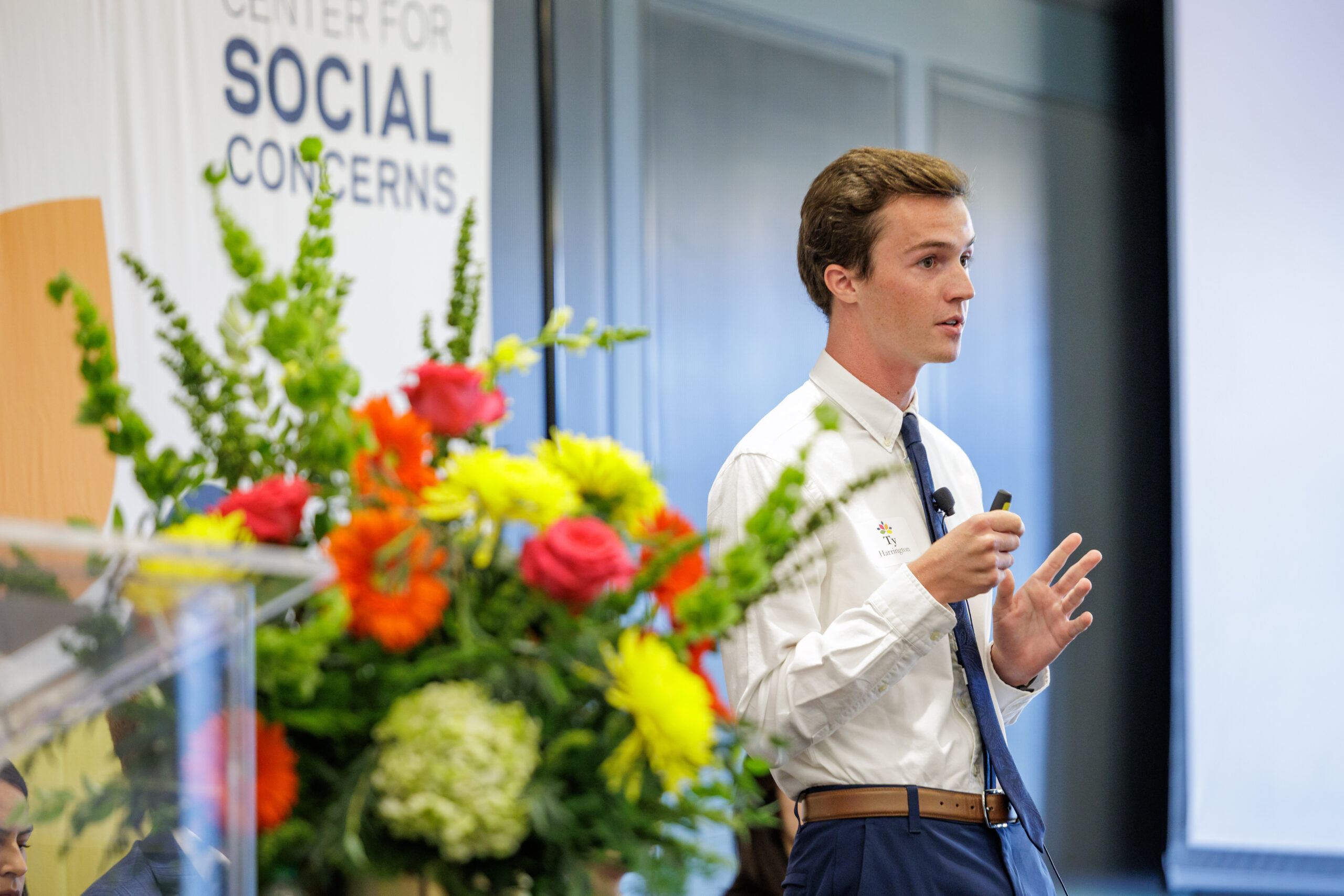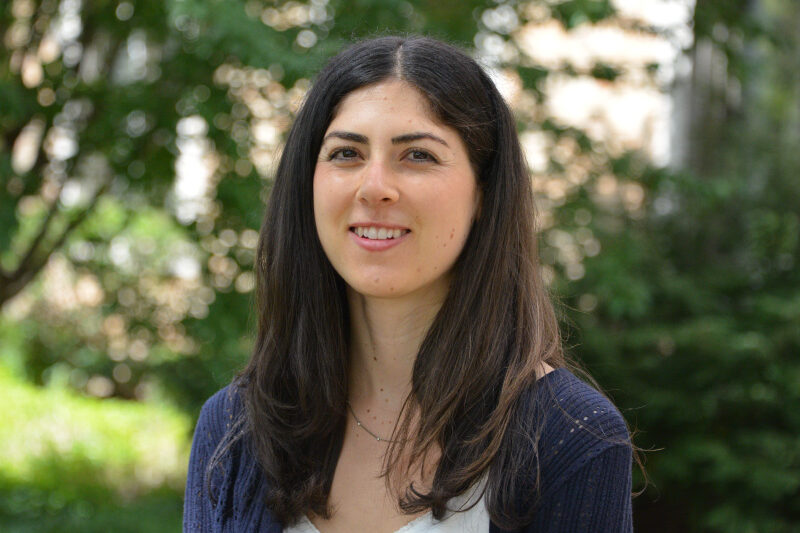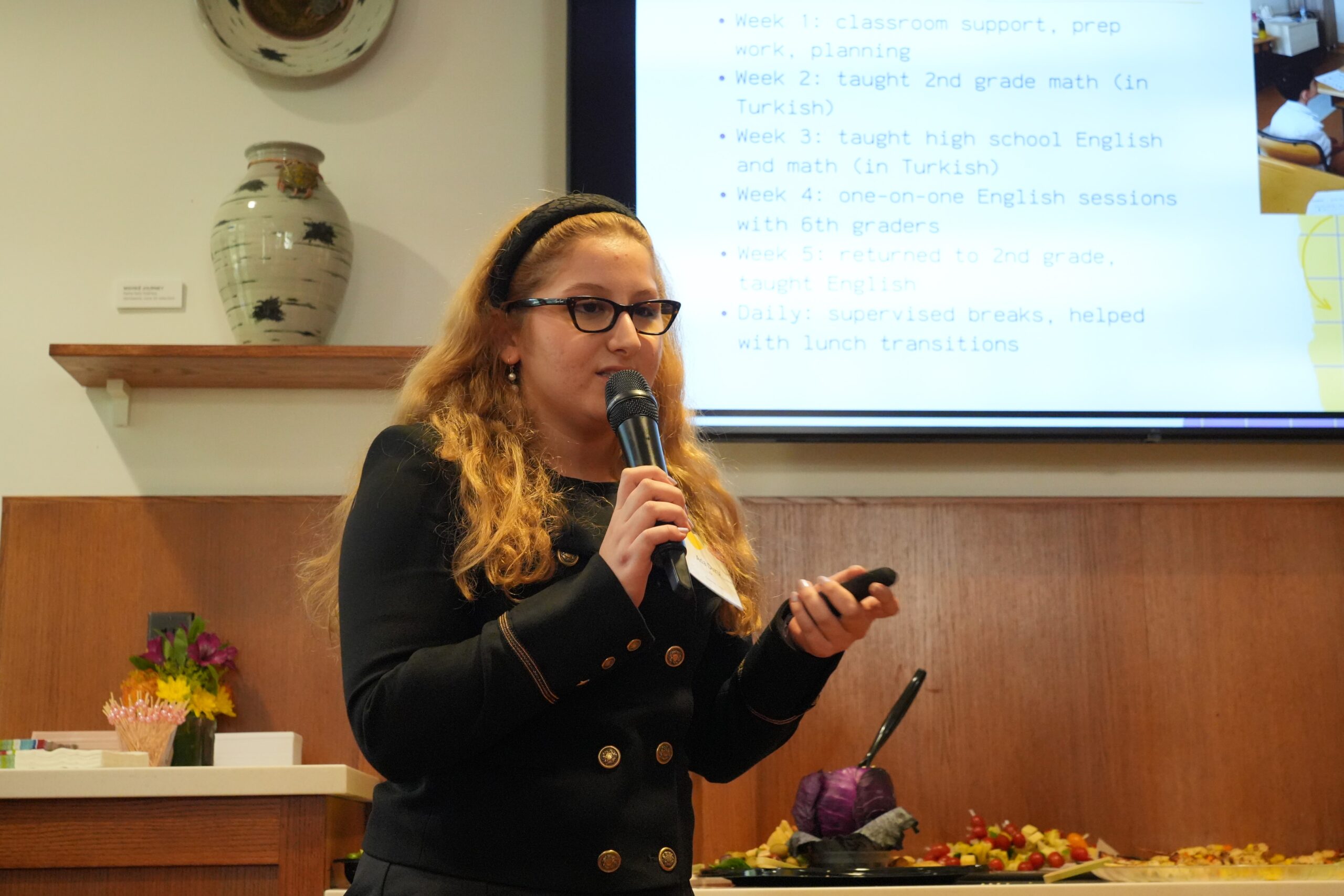Foundry Field collaboration celebrates South Bend’s past and promising future
June 20, 2023
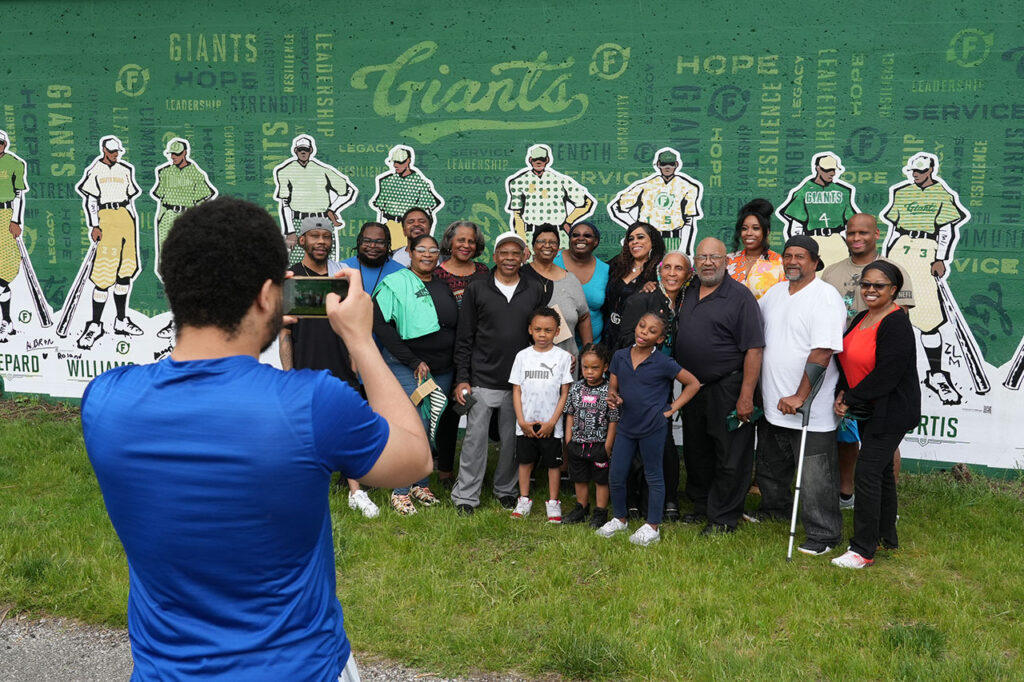
There’s magic in the game of baseball.
Not just in what happens on the field, but also in the game’s capacity to bring communities together, to stoke pride in a place’s history, and to inspire people into the future.
Foundry Field — a new public-access baseball field in South Bend supported by the Institute for Social Concerns — is designed to tap into the power of baseball to bring people together in the city’s Southeast Neighborhood around the Boys & Girls Clubs of St. Joseph County.
Earlier this spring, more than 180 people from around South Bend gathered in the city’s Southeast Park for a Foundry Field groundbreaking hosted by the Institute for Social Concerns.
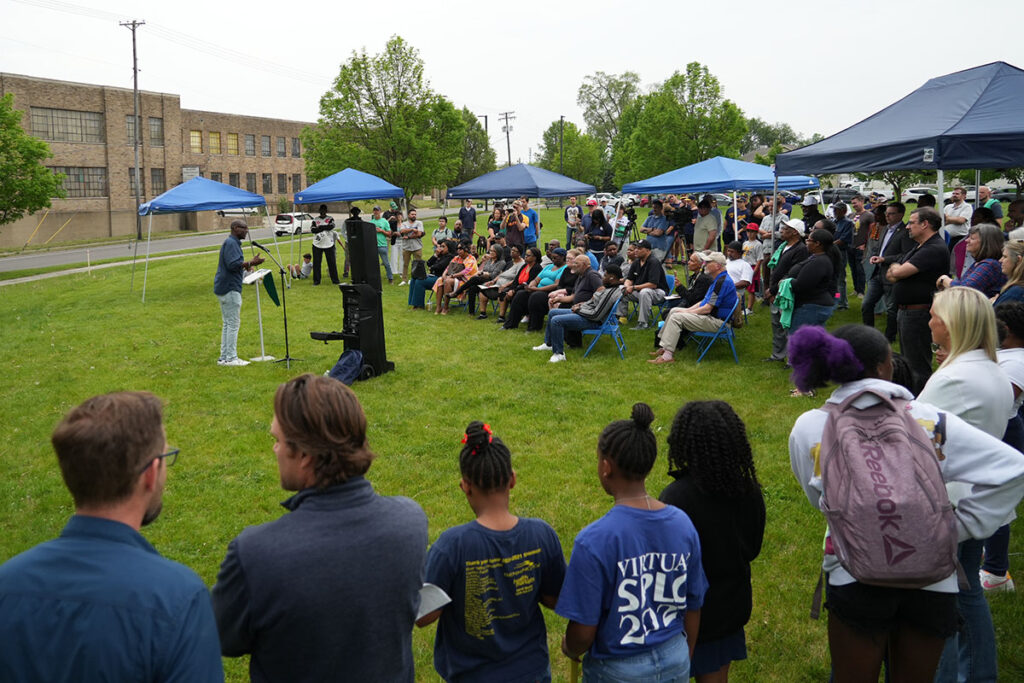
As proposed, Foundry Field will feature a full-size diamond with a grass infield, dirt base paths, a net-and-steel-pole backstop, an irrigation system, and a living hedge outfield fence. Future additions may include a covered vintage grandstand and dugouts, a scorebooth with a PA system, and a public pavilion. The field will be used for youth baseball through the Boys & Girls Clubs and South Bend Community School Corp, and will also be home to the Sappy Moffitt Baseball League, an adult recreational league.
The Institute for Social Concerns has served as a convener for the multiple community partners involved in the project and taken the lead on the art and storytelling aspects of Foundry Field. Other partners include the City of South Bend Venues Parks & Arts, the Indiana University South Bend Civil Rights Heritage Center, The History Museum, the Sappy Moffitt Field Foundation, and Southeast Organized Area Residents.
The hope for Foundry Field is that it will create more interest in baseball and more opportunities for people — especially young people in the urban core — to play the game.
At the same time, Foundry Field will provide a platform to preserve and tell the stories of underrepresented teams and communities from South Bend’s baseball and softball history.
The wall of the elevated railroad tracks passing by the edges of Foundry Field’s outfield has been turned into a canvas for murals that showcase the largely untold baseball stories of South Bend’s marginalized communities.
The first mural in the series honors the field’s namesake — the Foundry Giants, a predominantly Black team of foundry workers from the South Bend-based auto manufacturer Studebaker. The mural depicts the 1920s era of the Giants, when the team often stood atop the standings of the Studebaker industrial baseball league that was a prominent feature of the city’s sports scene at the time.
“This is a really exciting way to use a little bit of the past to infuse energy into the future,” said Aaron Perri, executive director of South Bend Venues, Parks & Arts. “It’ll be a real infusion into this park.”
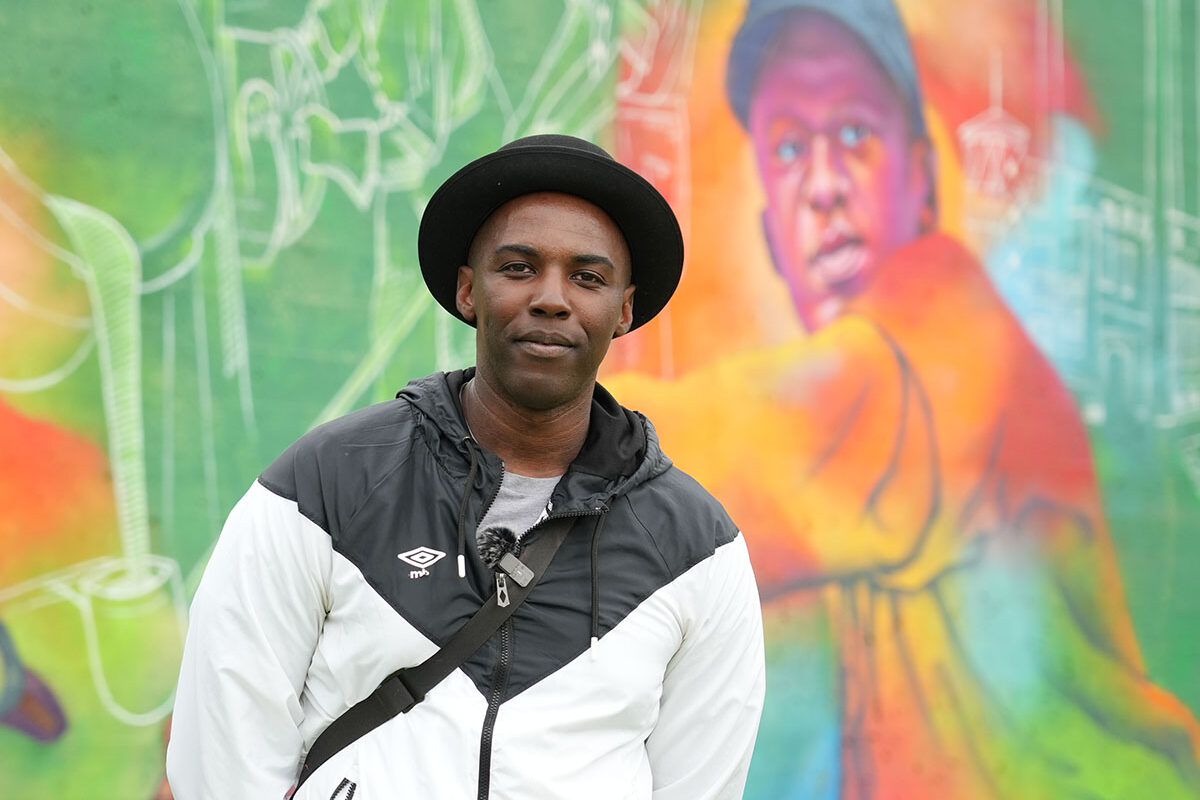
Funding from the Institute for Social Concerns paid for the wall to be cleared of vegetation, patched, and primed to make it ready for public art. In addition, the center covered the cost for nationally renowned muralist Thomas “Detour” Evans to travel to South Bend to paint the Giants mural. The result is a bright-and-beautiful work of neon hues against a rich backdrop of ballpark green.
“Being able to tell that story and impact the community visually, I think, is really important,” Evans told local news reporters. “When kids come here, they can be excited about the story.”
The Institute for Social Concerns facilitated the research and design process for the murals by partnering with Notre Dame faculty.
Katherine Walden, assistant teaching professor in the Department of American Studies, led the historical research on the Giants mural. Her students, with assistance from Hesburgh Libraries sports archivist Greg Bond, dug into South Bend Tribune and South Bend News-Times microfilm files to find rosters and stats.
Clint Carlson, assistant professor of design, and his students used the research done by Walden’s class to design Foundry Field’s logo and visual identity. The students and Carlson then led a workshop with the Boys & Girls Club, financially supported by the Institute for Social Concerns, where children made posters of historic Giants ballplayers that are now pasted on the wall next Evans’ mural.
Foundry Field is under construction now.
Come spring, the field will be ready for play — and ready for more stories to be told.
Read “Painting the Corner,” a feature story about Foundry Field, published in the spring 2023 issue of Notre Dame Magazine.
Related Stories
-
Social Concerns Summer Fellow returns to India for ongoing research
-
ReSearching for the Common Good: Solbee Kang
-
Bridging worlds through art—Kyla Walker joins institute as international poetry justice fellow
-
The power of encounter—RISE Hometown prepares incoming students for learning in service of justice at Notre Dame
-
The beauty of everyday democracy—Institute convenes scholars, practitioners, Luke Bretherton for democracy conference

